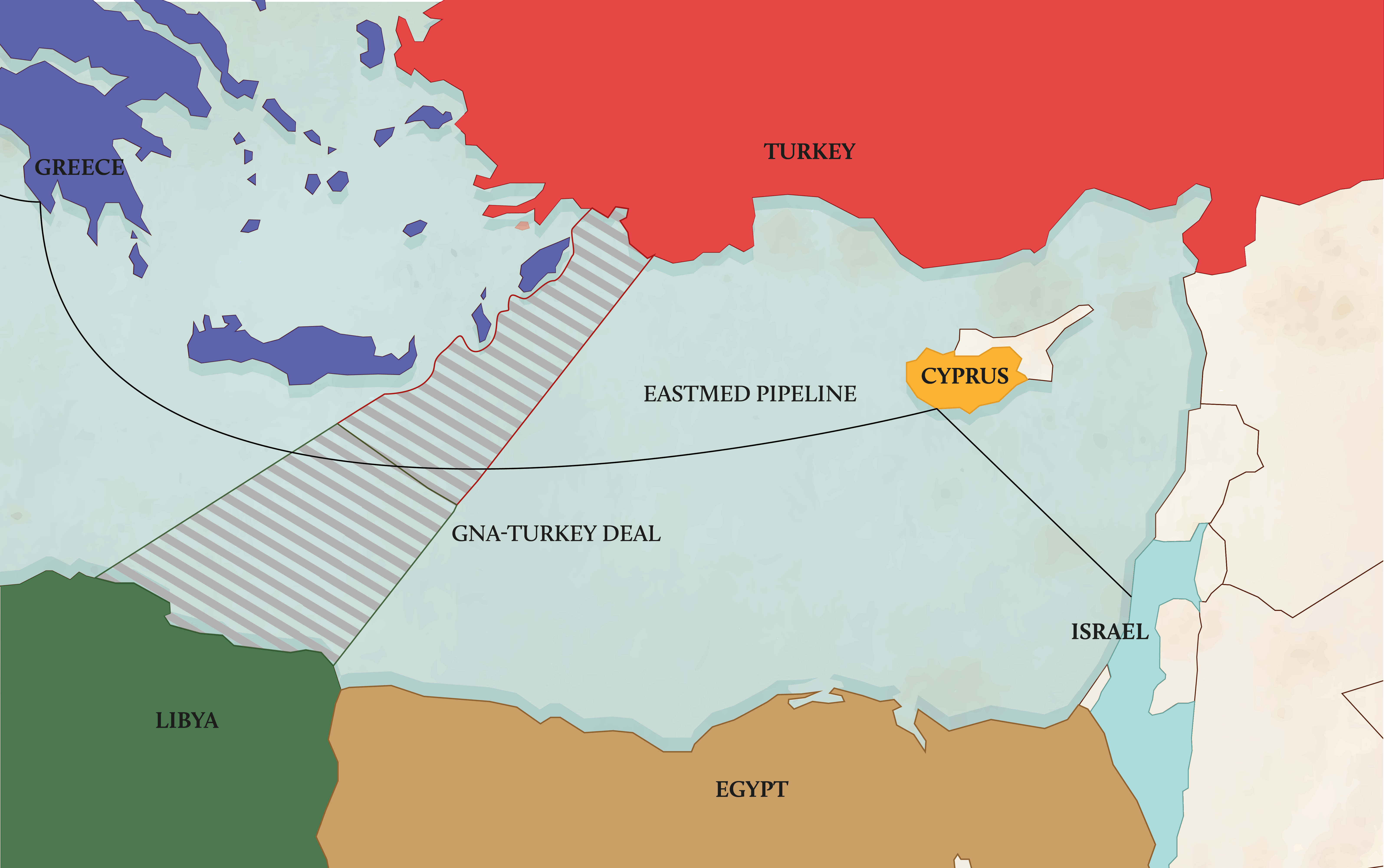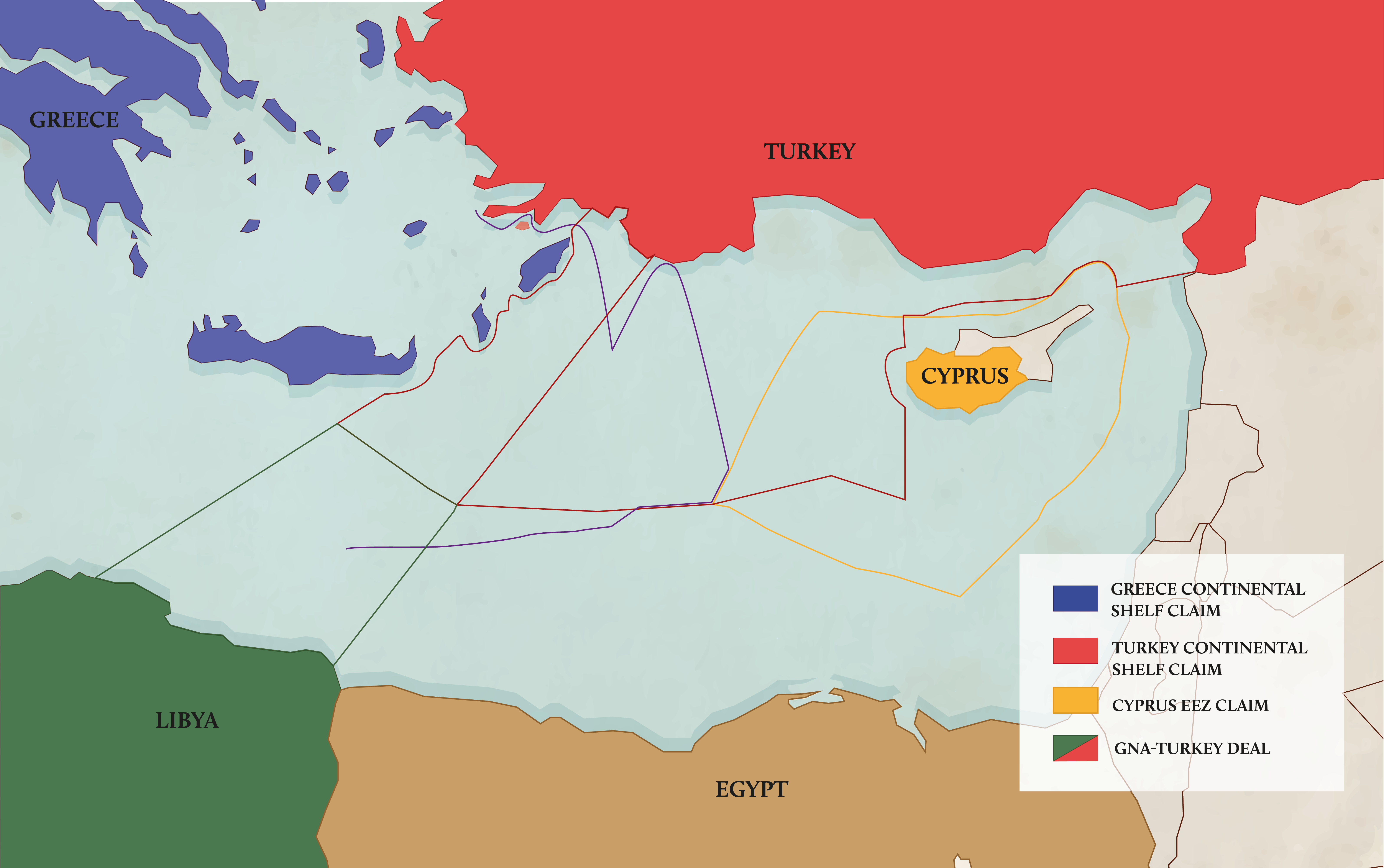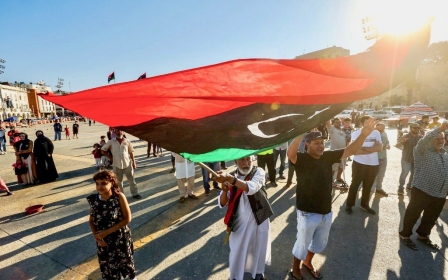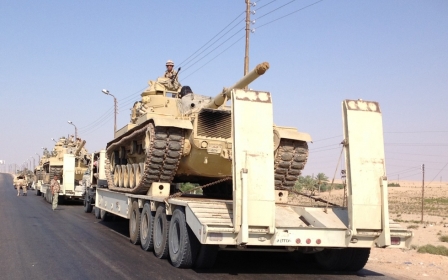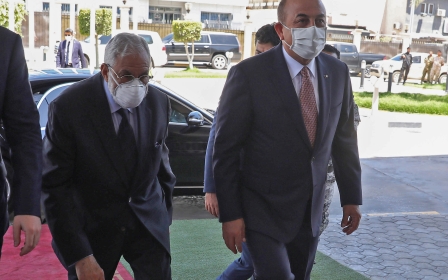Conflict, partnership, stalemate: Egypt and Turkey's Libya options
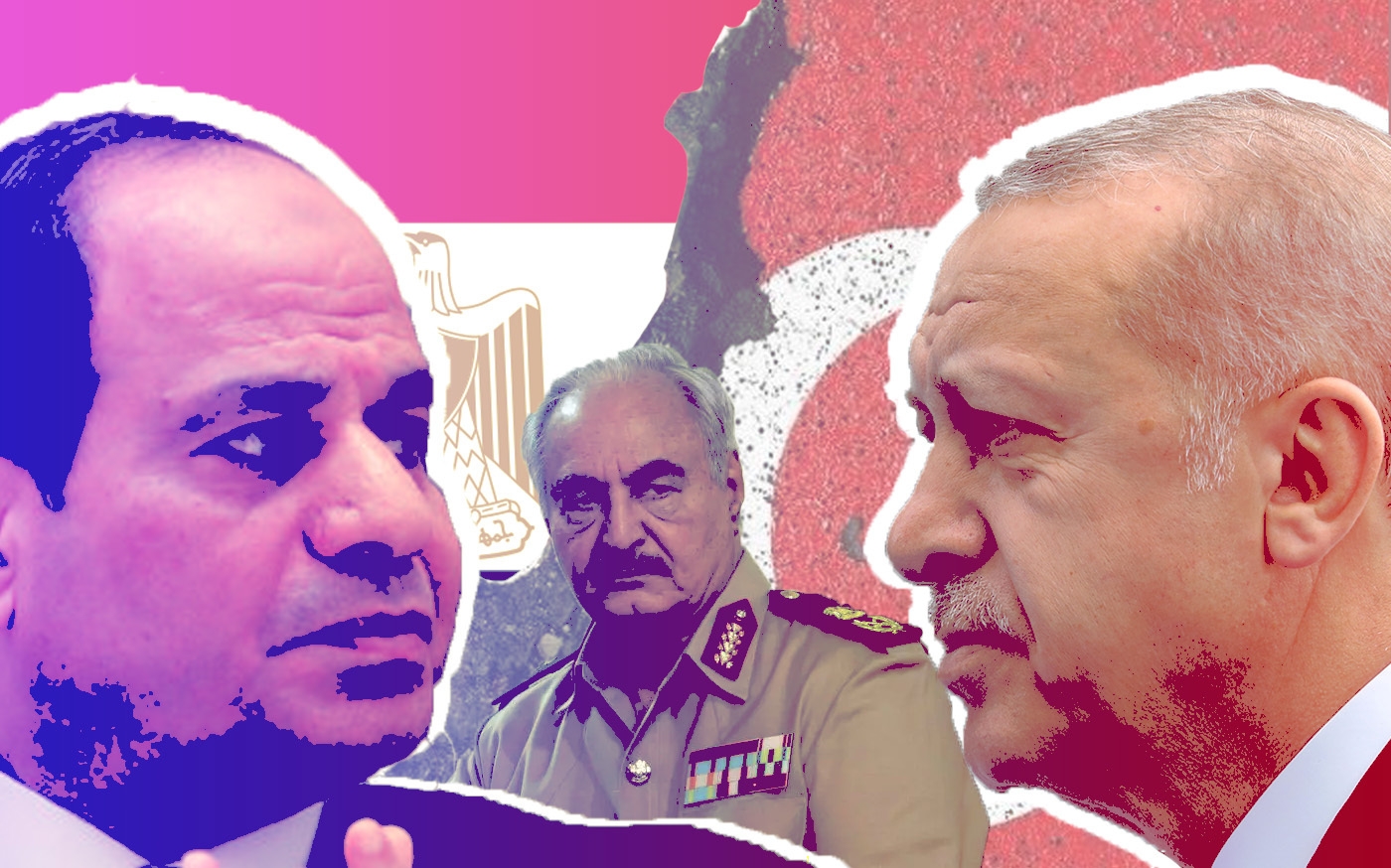
Open conflict, reticent agreement, or even partnership? Egypt and Turkey could go either way in Libya, as competition over the central city of Sirte heats up.
The past year has seen Libya edge ever closer from a proxy war into an outright conflict between Ankara on the one side and Cairo, the UAE and Russia on the other.
And with the bruising defeat of Khalifa Haftar's assault on Tripoli at the hands of the Turkish-backed Government of National Accord (GNA), Egypt has been forced to rethink its strategy and support for the man it hoped could be Libya's Abdel Fattah el-Sisi.
Under pressure, and with GNA forces advancing, the Egyptian president has taken a bellicose turn, warning that the strategic city of Sirte and Jufra air base were a "red line for Cairo".
In a speech before an audience that included Libyan tribal leaders on Saturday, Sisi said Egypt did not want to intervene in Libya and generally favoured a political solution, but added that "the situation now is different".
New MEE newsletter: Jerusalem Dispatch
Sign up to get the latest insights and analysis on Israel-Palestine, alongside Turkey Unpacked and other MEE newsletters
"If the Libyan people moved through you and asked us to intervene, this would be a signal to the world that Egypt and Libya are one country, one interest," he added.
'Egypt’s threats do not seem to be very serious, considering that Cairo is already doing its best to support Haftar in Libya'
- Turkish official
Though confrontational, Sisi's words have been taken by many observers with a pinch of salt - an approach encouraged by the president's own foreign minister, Sameh Shoukry, who said any interpretation that the speech was a declaration of war was wide of the mark.
Certainly, it appears Turkey does not expect its drones, allied Syrian mercenaries or hardware in Libya to be confronting the US-funded Egyptian military any time soon.
“Egypt’s threats do not seem to be very serious, considering that Cairo is already doing its best to support Haftar in Libya,” a Turkish official told Middle East Eye, speaking on condition of anonymity due to government protocol.
“It seems like an attempt to pressure the GNA to accept a ceasefire, possibly backed by Russians,” the official added. “We don’t know if Egypt has the necessary capacity to further increase its involvement in Libya.”
Likewise, Murat Yesiltas, a senior expert at Ankara-based think tank Seta, cast doubt on the seriousness of Sisi’s threats.
“I don’t find his statements very realistic,” he said. “I believe Sisi has intended to use this statement as a deterrent but not as a serious threat to use military force.”
Yesiltas explained that the long distance between Egypt and Sirte - around 800km - would make it difficult for the Egyptian armed forces to intervene.
Additionally, he said, Egypt is currently facing two major security threats: Islamic State group-linked militants in the Sinai Peninsula and Ethiopia’s plans to fill the Grand Renaissance Dam, which poses an immediate threat to Egypt’s share of Nile water.
Mediterranean gas politics
With open conflict seemingly off the table, there have been some suggestions that mutual interests in the Mediterranean could even pull Ankara and Cairo together.
Turkey and the GNA in November signed a maritime delimitation agreement marking out a swathe of the eastern Mediterranean as part of their exclusive economic zone (EEZ).
According to Khaled Fouad, a Middle East energy and political analyst, the pact offers Egypt two avenues of interest.
First, it would prevent the establishment of the EastMed gas pipeline, which would have threatened Egypt’s economic and geopolitical interest by bringing Israeli gas to Europe via Cyprus and Greece.
With gas liquification terminals in Idku and Damietta, Egypt has the infrastructure to become a hub for gas exports to Europe, a position that would be undermined if the EastMed pipeline is established.
Observers have already cast doubt on whether the EastMed pipeline is viable because it is both costly and there is uncertainty around the price of its gas exports, with Russia and Qatar already supplying Europe with cheap gas.
The Turkey-GNA deal adds to that complication because the new EEZ created overlaps with the EastMed route, which has now been earmarked as Turkish-Libyan waters.
Secondly, a rival maritime border agreement proposed by Greece and currently being negotiated with Cairo would favour Athens more than Cairo, according to Fouad.
It would give Greece more EEZ than Egypt, while the Turkish delineation, on the other hand, gives Cairo comparatively more waters.
Tempting as Turkey's EEZ offer may be, Egypt's allies may make a sudden change of heart an impossibility.
According to Fouad, the Egyptian government’s political priorities are determined not by its national interest but by regional alliances with Saudi Arabia and the UAE, formed in the wake of the 2013 coup that put Sisi in power.
“At the beginning of his rule, Sisi tried to enter regional and international alliances that would give him some legitimacy, because of his lack of democratic legitimacy at home," Fouad told MEE.
"These new alliances have imposed a number of decisions on his regime. Rather than fulfilling the demands and interests of the nation, which did not elect him, he has to find legitimacy abroad.”
The result, Fouad added, is that Sisi would never be able to come to an arrangement with Turkey - Riyadh and Abu Dhabi's great rival - "because he is bound by other regional alliances that are helping him to stay in power”.
Increasing aggressiveness
Claudia Gazzini, the International Crisis Group's consulting analyst for Libya, concurs that negotiations could benefit both parties far more than further conflict.
"If Turkey were to persuade Cairo to engage in a negotiation track, Egypt will actually get more in terms of square kilometres of the Mediterranean,” she told MEE.
But Ankara's increasing aggressiveness in Libya is threatening for Egypt, she added, despite the mutual benefits that could come out of Turkey cementing its position in Libya.
“Turkey is starting to appear a bit more aggressive in Libya than we have initially assessed," she said.
According to Gazzini, Turkey's intervention in Libya to prop up the GNA was very much driven by Ankara's keenness to change the boundaries of the EEZs in the Mediterranean in its favour.
Now there is a chance the wealth of Libya's oil infrastructure could be wrested from Haftar, Turkey and the GNA may find pushing further east and south too tempting to ignore.
'If Turkey were to persuade Cairo to engage into a negotiation track, Egypt will actually get more in terms of square kilometres of the Mediterranean'
- Claudia Gazzini, ICG
“There are indications that they want to push into the oil crescent and reestablish GNA control over Libya's oil exports, which would serve the purpose of Turkey cementing its claims over its EEZ with Tripoli,” she said.
It is also not clear that Sisi is yet willing to drop Haftar.
The eastern commander launched his Tripoli campaign in April 2019 largely against the wishes of his patrons, and Egypt has already provided him with large amounts of material support only to see Haftar undermine their position by failing to take the Libyan capital.
In the end, Fouad said, the idea of having a friendly autocrat to deal with in Libya could trump Sisi's interests.
“While he may agree with Turkey on the maritime borders, he does not want Turkey to expand into the east, because he is keen to have another Sisi in Libya,” Fouad said.
As for Turkey, it may not be overly keen on any partnership with Egypt either.
“Sisi is seen as a dictator by the government in Ankara and the differences between the countries are hard to bridge," a former Turkish official told MEE, speaking on condition of anonymity.
"Before any energy cooperation between the two, the diplomatic relations should begin to normalise.”
Middle East Eye delivers independent and unrivalled coverage and analysis of the Middle East, North Africa and beyond. To learn more about republishing this content and the associated fees, please fill out this form. More about MEE can be found here.


